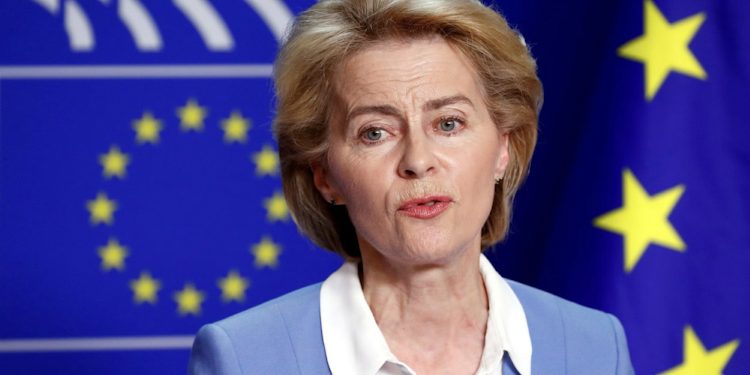Undeterred by the challenges posed by previous climate policies, the European Union, under the leadership of EU Commission Chief Ursula von der Leyen, is actively advocating for a substantial increase in investments for the green agenda, reaching into the trillions. At the 28th edition of the United Nations’ premier annual climate summit in Dubai, attended by global leaders (many arriving on private jets), a stark contrast emerges between the aspirations of politicians and the hardships faced by ordinary citizens in Europe amid an energy crisis resulting from the Ukraine conflict and substantial investments in questionable ‘renewable’ energy sources.
In the face of these challenges, Ursula von der Leyen’s response is to intensify support for the very policies that contributed to Europe’s precarious energy situation. Emphasizing the need for greater financial commitment, the German politician asserts, “More is needed; we have to move from billions to trillions.” Acknowledging that achieving such ambitious goals requires finding new sources of revenue, von der Leyen expresses full support for the proposal put forth by Kenyan President William Ruto and French President Emmanuel Macron. This proposal suggests implementing a global green tax targeting financial transactions to generate additional funds for climate action.
Furthermore, von der Leyen advocates for heightened efforts in expanding “green bonds” to facilitate the inflow of private capital into green projects, especially in developing nations. Highlighting the European Union’s substantial contribution of nearly 30 billion dollars in climate finance to developing countries last year, she underscores the importance of fostering sustainable development globally.
The EU chief also stresses the necessity of expanding carbon pricing, a pivotal component of the European Green Deal. This strategy involves imposing taxes on emissions to incentivize businesses to reduce their carbon footprint. Over the course of two decades of implementing carbon pricing, the European Union has accumulated 175 billion euros in revenues from companies, redirecting these funds toward climate change projects that align with the region’s environmental goals.
In climate finance, we have to move from billions to trillions.
— Ursula von der Leyen (@vonderleyen) December 2, 2023
To get there, we need new sources of revenues.
New levies, green bonds and of course – carbon pricing.
And we need, more than ever, strong partnerships, like with Global Gateway.
In addition, Ursula von der Leyen emphasized the European Union’s substantial commitment to the ‘Global Gateway,’ a 300-billion-euro initiative designed as a response to Communist China’s Belt and Road program. By channeling funds to developing nations, von der Leyen contends that the European Union aims to assist these countries in “leapfrogging into a clean energy future.” She underscores the strategic importance of such investments for Europe, stating, “We Europeans are interested in investing because this diversifies and strengthens our supply chains in these growing new markets. It is the best investment any of us can make.”
Meanwhile, within the United Nations summit, leftist leaders directed criticism at the West, holding it accountable for an alleged climate emergency. Bolivian Vice President David Choquehuanca, representing socialist perspectives, attributed the crisis facing “Mother Earth” to “neocolonial, capitalist, imperialist, patriarchal, Western culture.” Asserting that the climate crisis is a consequence of historical hypocrisy and falsehoods, Choquehuanca contends that the ‘Global North’ is responsible for the prevailing global imbalance, pursuing perpetual growth at the expense of the ‘Global South.’
The climate summit witnessed leaders from 130 countries committing to incorporating emissions reduction from farming as a central element of their respective green agendas. Despite this commitment not mandating specific taxes on food production, its implications raise concerns, particularly as food prices soar globally due to escalating energy costs. This declaration is expected to spark further disputes with farmers, who have already staged extensive protest movements, such as those in the Netherlands, opposing environmentalist initiatives aimed at shutting down their businesses.
 Telegram is where we really talk. Don't miss out!
Telegram is where we really talk. Don't miss out!







